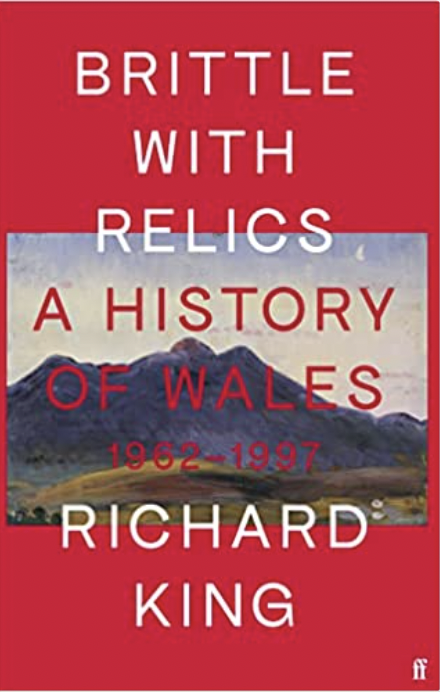
Is Welshness a powerful reflection of Englishness?


Welsh experienced the simultaneous effects of deindustrialization, the subsequent loss of employment and community cohesion, and the struggle with its language and identity.
Battle of Relics is a history of the people of Wales undergoing some of the country’s most seismic and traumatic events the disasters of Aberfan and Tryweryn; the rise of the Welsh language movement; The Miner’s strike and its aftermath; and the narrow vote in favour of partial devolution.
The village of Capel Celyn was drowned in 1965 when the valley of Tryweryn, in northwest Wales, was flooded to create a reservoir to serve th4e English city of Liverpool. Although no Welsh MP supported the bill which enabled the reservoir to be built. Seventy people had to abandon their homes. The words “Cofiwch Dryweryn” written on the wall of a ruined cottage near Aberystwyth, later became a slogan of Welsh nationalism, and the flooding of the valley precipitated the election of Gwynfor Evans, the nationalist Plaid Cymru’s first MP in 1966. Also in 1966, the south Wales village of Aberfan was partially submerged when Tip 7 at the Merthyr Vale colliery collapsed sending a gush of spoil from the local mines down the hill, destroying several houses and a primary school in its path. The death toll was 144, including 116 children. The National Coal Board headquartered in London admitted the collapse of Tip 7 was an avoidable tragedy.
The injustices caused by the government in Westminster led rural Wales to decline and by the 1970s its industrial heartlands were also tumbling down. Hippies and environmentalists, retirees and second-home owners drove up the house prices.
From 1979, Wales endured eighteen years of Conservative rule, despite electing a Tory majority at a general election.
Saunders Lewis, a founding member of Plaid Cymru, made an influential speech defending the Welsh language, and Welsh culture, rather than self-government amid the requirement for all holders of public offices in Wales to speak English, which was seen by many as smart and modern, whereas Welsh was the language of old-fashioned respectability. Nonconformist was Chapel-going and the Eisteddfodau festivals of Welsh culture.
Activists undertook campaigns of civil disobedience and the destruction of property, defacing road signs written in English and spraying lemonade around the office of a Tory MP.
Mudiad Adfer (the Restoration Movement) was founded by a leading member of Cymdeithas to address the housing crisis and to highlight the mythic idea of Y Fro Gymraeg- the Welsh-speaking heartland – in monoglot Welsh communities in the west, having properties, renovating and letting them to Welsh-speaking locale.
Welsh nationalism had a paramilitary arm too, Mudiad Amddiffyn Cymru ( the Movement for the Defence of Wales) detonated a series of bombs in the 1960s including one at the construction site of the dam used to flood Truweryn.
One musician on the scene told King that the experimental rock band Datblygu “completely changed how I thought about the language, how I thought about my own culture… Someone’s actually speaking about what it’s like to live in Wales”.
Featuring the voices of Neil Kinnock, Leanne Wood Gruff Rhys, Michael Sheen, Nicky Wire, Sian James, Welsh language activists, members of former mining communities, this is a vital history of a nation determined to survive while maintaining the hope that Wales will one day thrive on its own terms.
Brittle With Relics: A History of Wales, 1962-97 by Richard King, Faber, 526 pages £25.
